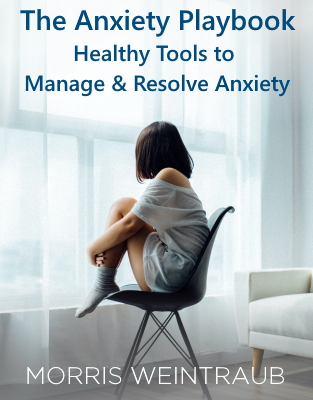You can’t wake up until you’re willing to see and admit to who you are. What follows is list of observations and questions that have recently crossed my path, 100% of which I wish I’d encountered far sooner. Unfortunately, lessons arrive when you’re ready, rather than when needed – which is why wisdom has always been the byproduct of failure. May we all fail (or flail) forward my friends, doing the work necessary to see ourselves a bit clearer each and every day.
- Explore your childhood and your relationships with your parents. Learn the programming that drives your patterns and behaviors. The deepest work is deeply personal. Start at the beginning if you want to learn the truth.
- Know your wants, needs and desires and be willing to communicate them. Your partner, family, boss and friends can’t meet your needs if they don’t know what they are. And if you don’t know what they are, it’s your job to figure them out.
- Learn to advocate for yourself. If you struggle with this, there’s a good chance you you didn’t feel safe to have needs as a child.
- Set boundaries without being a jerk. This requires knowing and honoring your needs. It requires knowing your limits and being willing to walk away if they go unmet. This is important, because every time you move a boundary you undermine your own self-worth and others lose respect for you.
- Identify whether you’re a giver or a receiver. If you’re too far on either side of the equation, you’re a problem. Co-dependents can be every bit as destructive as narcissists. This spectrum is an invaluable lens to view yourself and your relationship through. Giving until you get resentful isn’t generous, it’s disingenuous. Taking more than your fair share may leave you empty handed. It’s a balance.
- Believing the more kind, generous and helpful you are the more love you’ll receive is a false narrative. This “covert contract” is a recipe for disaster. It’s a bid for constant validation, which isn’t love… and it leads to a cycle of unmet, unexpressed needs that quickly turn to resentments. These resentments eventually fuel emotional outbursts and passive aggressive behavior. If you grew up thinking you needed to be a certain way to be loved, this could easily be a pattern of yours. Identify the ways you’re seeking validation and from whom you want it. Is there a common link between your parents, partner, boss, friends or kids?
- When you feel unworthy of love you’ll do anything for validation. Who did you have to be as a child to gain approval or attention? This pattern is with you today. Everyone has their own way of seeking love, praise and validation and this pattern started long before your first day of school.
- Stop trying to avoid confrontation by being nice, kind or polite. This is a form of subtle manipulation. Doing and saying the “right” thing is most likely causing everyone more harm than good. Instead, aspire to be fully honest. You think you’re “being the bigger person” by keeping quiet or communicating indirectly, but you’re not. You’re really just afraid of being judged, condemned or abandoned. If this is you, you might ask yourself if you’ve ever been physically or emotionally abandoned before? If so, who pulled away and what did you learn from that?
- Were you free to talk, trust and feel as a child? If not you’re probably still hiding as an adult, which only deepens your feeling of disconnect and unworthiness. Hiding your thoughts, feelings, needs and desires ensures that you’re going to act out later on. What we repress, we express in unhealthy ways. Did you grow up hiding things from your parents or friends?
- Perfectionism is rooted in a deep fear of unworthiness. It’s a form of overcompensation. While perfectionists take great pride in themselves and their work, few are happy people. They project their unrealistic expectations onto those they love, believing they know how things “should” be and others “should” act. Not only is this destructive, it ensures constant disappointment and dissatisfaction which breeds a feeling of superiority and contempt for others. The belief that everything could and should be better is exhausting for everyone involved. If this resonates with you, what might it feel like to release yourself from the burden of expectation?
- The more you minimize your pain, the longer it stays with you. Minimizing is a form of denial. So long as you believe you had a great childhood and everything was “fine,” you’ll never see where your patterns come from. Your parents did the best they could. They gave you what they’d been given by the generation before. This isn’t about blame. It’s about learning where you came from, so you can understand who you are today. It’s about seeing and accepting the reality of your past so you can untangle the family thread of generational suffering. What qualities of your parents and grandparents do you embody? What traits do you share, for better and worse?
- Write down the stories you tell yourself and audit them. It’s normal, even habitual, to craft stories that protect us from painful memories and experiences… but it’s these stories that stand between us and the truth. Can you poke holes in one emotionally charged story you “know” is “totally” true?
- The deeper the wound, the greater the denial. You’ve gotta revisit your trauma to go beyond it. Find the courage to go there, if not for yourself then for those you love – cus’ if not, your past will will color your future, forever. Think of your three most painful memories, things you’d rather not dwell on… and dwell on them.
- If you find it hard to receive love, you probably feel unworthy. If you’re more comfortable giving than receiving, ask yourself why? If you’re unwilling to receive, how are your relationships ever going to be equitable? If you’re unwilling to receive, how can anyone meet your needs? Don’t pretend you’re selfless, cus’ you’re not. If you’re the one who’s always giving, there’s a good chance you think you’re the victim.
- Realize every time you blame someone you’re claiming to be the victim. Refuse to be the victim! Victimhood is disempowering. It leads to low self-esteem and depression.
- Your defensiveness is a reflection of your insecurity. Ask yourself what made you feel most shameful as a child? Who couldn’t you be if you wanted to be loved? And what did you find most unfair? Herein lies the answer to your defensiveness.
- Women don’t want a vulnerable man. They want a man who leads with vulnerability, but projects confidence and certainty the vast majority of the time. A man’s vulnerability is deeply unsettling to a woman with security or safety issues.
- Putting someone at the center of your world makes you indecisive and ensures you’ll never live your own life. The more you focus on another, the less you meet your own needs, make your own decisions and care for yourself. If this is your pattern it’s important to figure out what you like, what you want and what makes you happy, so you can begin to take responsibility for your own life.
- So long as you make another person your purpose you’ll remain lost, because that person never wanted the job of fulfilling you. You must find purpose or passion beyond your relationship to retain balance within your relationship.
- What you do is an extension of who you are, so do something that reflects your true nature. You can be loved for who you are and what you do. It isn’t an either-or scenario.
- There’s no such thing as unconditional love in romantic relationships. You can’t expect your partner to love you as a parent would and you can’t ask them to change too much either. There’s a balance between acceptance and expectation and that line needs to be drawn through cooperation and compromise.
- There is no relationship without compromise and it’s how you behave during the big decisions that matters most. If you think “I” rather than “We” when the chips are down you aren’t committed to the relationship, you’re working to meet your own needs at the expense of the relationship.
- If you’re chronically anxious you likely blame others for your insecurities. If you’re chronically triggered, you likely overreact to your insecurities. Either way, you’re sabotaging your relationship by failing to address underlying issues.
- Your freedom is equivalent to your acceptance – and your ability to accept yourself as you are and life as it is, IS everything you’ve ever truly longed for.





